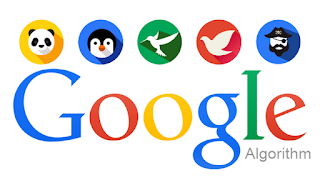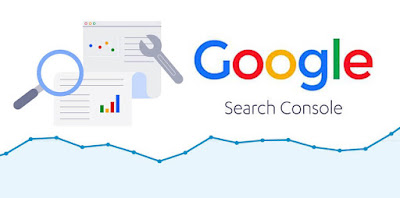Important Google Algorithm Updates
Important Google Algorithm Updates
Black hat SEO is an unethical practice used to rank a
webpage higher in Google search results. This practice is against the search
engine guidelines. They are different types of Black hat SEO techniques.
- Keyword stuffing-
The repetition or insertion of keywords in large numbers into a website.
- Blog commenting-
A strategy of building links to different sites through commenting.
- Irrelevant keyword-
The title and content of a webpage will possess different keywords.
- Cloaking-
It is a method where the impression of the website given to search engines is
different from what the website actually carries.
- Duplicate content-
It is when plagiarized or copied content is presented on a website.
- Content spinning-
It is the repetition of the same content on a website.
- Clickbait-
It is the content that attracts the users’ attention, gradually developing
curiosity in them.
- Link farming-
It is a method of automatically generating links to other websites.
- Hidden texts or links- Texts that are not visible to users and invisible hyperlinks are hidden in a website.
To prevent these malpractices Google came up with different algorithm updates. Google algorithm is a set of rules which helps provide the best results to the users and to rank webpages according to their relevancy and user interaction.
Google Panda – 2011
- Google panda was an algorithm update against content farming
- It’s the first algorithm
- Its also known as ‘Farmer update’
- Panda update filtered and removed content from spamming
- Content spamming includes plagiarism, content spinning, thin pages, keyword stuffing etc.
- In 2014 new updated version of Panda, Panda 4.0 was applied as a permanent filter.
Google Penguin – 2012
- Google Penguin was an algorithm against link spamming
- Link spamming includes paid links, link exchange, link scheming, link farming, comment spamming, links from low-quality websites, wiki spamming, guest blogging etc.
- In 2016, Penguin 4.0 version made spam detection and punishment a real-time scenario.
Pigeon Algorithm – 2013
- The pigeon algorithm was an update which help boost local SEO
- It helped improve a web page’s local visibility and attract relevant users
In order to use the Pigeon algorithm, a web owner
should -
- Register to ‘Google My Business, to list websites locally
- Add contact details and other necessary details
- Submit the website to local directories
- Embed placemark (location with Google map)
- Improve social media interactions through social media platforms.
Hummingbird Algorithm – 2013
- This algorithm provides semantic and deep information about a search query on a real-time basis
- User reviews and feedbacks are examples of hummingbird algorithm.
RankBrain Algorithm – 2016
- This is a modified version of the Hummingbird algorithm.
- ‘Artificial Intelligence’ (AI) was added in this update to provide quality search results.
- It helped provide better search results based on past searches like suggestions by Google.
Google Mobilegeddon – 2015
- It is also known as the ‘mobile friendly update’.
- Its purpose was to boost mobile-friendly websites in search results.
There were different criteria for websites to be
mobile-friendly-
- Users must be able to read content without tapping or zooming
- Horizontal scrolling was not allowed
- Appropriate space should be provided between tap targets.
- Non-playable content should be removed.
- From 2016 websites were ranked only if they were mobile-friendly
- In 2017 to support mobile-friendly websites, a new project AMP, Accelerated Mobile Pages was introduced. This project stored mobile-friendly website data for quick retrieval and delivery to users.
Park Domain Update – 2012
- Domain parking meant that web owners create and register a particular domain without converting it into a website.
- Park domain update filtered these reserved domains and restrained indexing these web pages.
- these reserved domains hardly had any content.
EMD – 2012
- Exact Match Domain
- This update removed the websites with the exact same content and with no improvements in content or other features.
Pirate Algorithm – 2012
- This update removed and punished websites that contained pirated contents.
- DMCA (Digital Millennium Copyright Act 1998) can be filed to remove and punish websites that contained copied content.
BERT Update
- BERT- Bidirectional Encoded Representation from Transformers
- This update was introduced by Google to understand and process natural languages, ie. different slang.
Possum Update
- This update filtered real-time results in local searches.
- It filters local websites for a local search query.
- This update focuses on listing more specific keywords.
Google FRED Update – 2017
- This update was to regulate advertisement volume on websites.
- It helped prevent the over usage of advertisements on a website.










Comments
Post a Comment